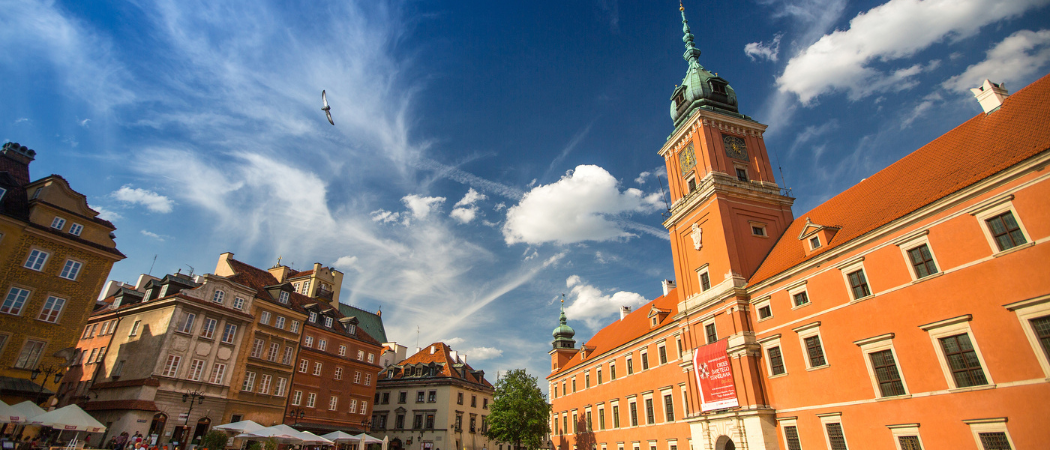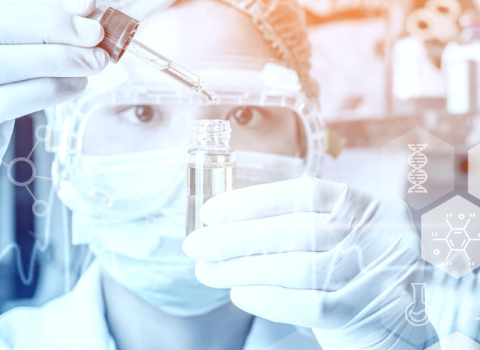EIT Food extends its accelerator hub with the backing of the European Bank for Reconstruction and Development

Warsaw, Poland. Photo credits: De Visu
The European Bank for Reconstruction and Development (EBRD) has put its weight behind a new agrifood accelerator in Warsaw, promising increased support for start-ups in this sector across central and eastern Europe.
The Future Resilient Agriculture hub extends a network of accelerator hubs run by the European Institute of Innovation and Technology (EIT) Food community, and marks a rare collaboration between the two institutions.
The hub’s programme will run initially for three years, with a single cohort of at least 10 start-ups selected each year. Candidates will need to be at the pre-series A stage. “This programme is for companies that have already completed market validation and identified some customers,” said Marie Russier, head of entrepreneurship programmes at EIT Food. “Their focus now should be on further validating their technology and moving to a successful launch or market adoption.”
Focus areas include soil health and soil biodiversity; water management; crop innovation; bio inputs; carbon and nitrogen farming; ‘on-farm’ measurement, reporting and verification, smart farming and robotics. Applications for the 2025 intake are open, with a deadline of 21 February 2025.
Participation in the accelerator brings grant funding up to €3,000 for travelling expenses and up to €50,000 for technology validation support. Being part of the programme also selected start-ups to benefit from AgriFoodInvest, EIT Food’s investment vehicle, which can put up to €1.5 million into a venture. Participants can also access further EIT Food programmes that support start-ups through the next stages of scaling up and internationalisation.
Selected start-ups will follow a hybrid programme, with only short visits required to Warsaw. They will share some elements with the whole cohort, but otherwise receive personalised guidance to help them validate their technology, connect with corporates, and gain exposure at international innovation and investment conferences.
The alliance is a result of EBRD seeking to increase its support for agrifood start-ups in the region and EIT Food wanting to expand its network of hubs.
“The programme that we have put in place presents the EBRD with a good opportunity to support those start-ups,” said Russier. “We both have strong networks, which when brought together can be very beneficial for the start-ups that we will support in the agrifood tech space.”
The bank also sees synergies. “EIT Food and EBRD have similar goals to build the capacity of agrifood start-ups and promote new technologies and digital solutions aimed at decarbonisation, climate resilience in agrifood sector, and environmental sustainability,” said Nemanja Grgic, associate director for agribusiness advisory at the bank.
Market development
EBRD has worked with EIT before on market development projects, such as a 2023 initiative to build up the investment landscape for electric vehicle battery recycling in central Europe, but not on direct support for start-ups or research teams.
And while the bank has its own Star Venture programme, which offers mentorship to start-ups and accelerators in regions where it has an interest, this has hardly touched central and eastern Europe. A handful of start-ups from Romania and Bulgaria have benefited, along with a couple more from Hungary and Latvia through the sector-specific AgVenture programme, launched in 2023.
For EIT Food, the alliance extends the reach of its accelerator network. “It’s a combination of funding, since this is supported through the InvestEU programme, EBRD’s strong network that will be very interested in connecting with our start-ups, and its expertise,” said Russier.
EBRD meanwhile expects the hub to help corporate clients improve their environmental performance thanks to technologies developed by start-ups.
“By bringing together start-ups, corporations and investors, we aim to create a sustainable, inclusive agrifood system that accelerates the adoption of green technologies in the agrifood sector,” said Jelena Erker, EBRD’s associate director of food and agribusiness.
EBRD’s focus for the hub is on central and eastern European countries, plus Cyprus and Greece. However, the accelerator will be open to applications from across Europe and beyond, in accordance with the more inclusive rules of EIT Food.
“This new hub will not only welcome start-ups from the CEE region, but start-ups from all over Europe,” Russier said. “And companies from the CEE region will also be able to access the other hubs that we have in Europe.”
These are in Helsinki, Munich, Paris, and Bilbao, with overseas hubs in Haifa and Campinas in Brazil. Each has a different focus, from new ingredients and bioprocessing in Paris to sustainable food packaging in Bilbao.
The choice of Warsaw to host the future resilient agriculture hub is partly pragmatic, since EIT Food’s regional headquarters is based in the city. This means that teams to run the programme and local networks are already in place. But the decision also recognises Poland’s strength in the sector.
“Locating the hub in Warsaw allows us to leverage our strong regional expertise in sustainable farming practices, our longstanding collaboration with agritech innovators and the region’s rich heritage in primary production,” said Marja-Liisa Meurice, director of EIT Food North East.
And while not a primary goal, the local start-up ecosystem should benefit from the hub’s presence. “There will be events in the region, gathering a lot of stakeholders from across Europe, so there is an opportunity for the local ecosystem to meet the pan-European ecosystem,” Russier said.
Network effects
Russier emphasises the network effect as particular strength of the programme. “There are very few accelerators that have so many hubs and such a wide network of corporate partners, investors, universities and research centres that can support our start-ups with all the tech elements.”
The programme will end each year with a large pitching event in Warsaw. “We’ve realised that organising demo days is extremely useful for the start-ups, helping them with pitching to corporates and to investors,” Russier said. “It’s important that they get this opportunity and exposure towards the end of their programme.”
Further growth
Meanwhile, EIT Food is considering adding further accelerator hubs to its network. “We are looking at places both inside and outside Europe where there is a need and an alignment with the EIT Food strategy,” Russier said.
After launching a hub in Brazil in 2024 further locations in North America, Asia, Australia and the Middle East are being considered, but nothing is set in stone. “This needs to be done in strategic way, where there is demand and it would be beneficial for both start-ups and the local ecosystem,” Russier said.
Elsewhere in the Ecosystem…
- Sweden and Poland are discussing expanding cooperation on innovation, including research and industry collaboration, as part of an extended strategic partnership between the two countries. While defence and security headline the agreement, it also sets out the ambition for greater cooperation on smart, green and digital industrial development, along with research and innovation in healthcare and biopharmaceuticals. There is also to be further dialogue on venture capital and private equity, including the establishment a joint working group to foster foreign direct investment.
- Baltic pre-seed and seed investor BSV Ventures has closed a €15 million fund to support deep-tech, life sciences, and dual-use start-ups. It was supported by the NATO Innovation Fund, marking its first investment in a Baltic fund, Lithuania’s ILTE fund, and private investors from across Europe.
- Latvian start-up Lightspace Technologies, which makes 3D displays for augmented and virtual reality applications in defence and healthcare, has been acquired by Summa Defence of Finland for an undisclosed sum. Summa says it is finalising several further acquisitions in the security and defence technology sector.
- BrnoLogic, a 2021 spinout from Brno University of Technology developing programmable chip technology for AI and virtual reality applications, has raised €550,000 in pre-seed investment and rebranded as Dynanic. The round was led by Tensor Ventures in Prague and included angel investments from former executives at Dell, AMD, Intel, and Hewlett Packard Enterprise.





 A unique international forum for public research organisations and companies to connect their external engagement with strategic interests around their R&D system.
A unique international forum for public research organisations and companies to connect their external engagement with strategic interests around their R&D system.